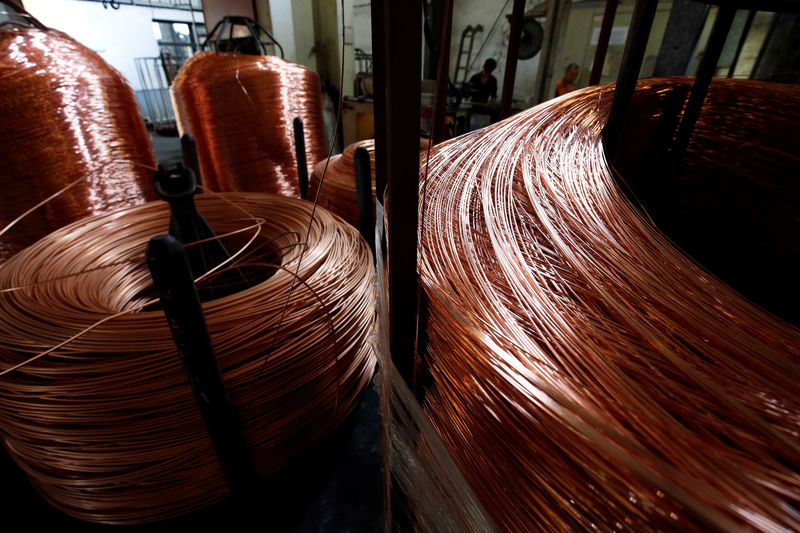Investing.com -- The recent sharp correction in copper prices appears to have largely run its course, positioning current levels as a compelling medium-term entry point for investors, as per analysts at UBS Global Research.
Although macroeconomic conditions remain challenging, particularly with weaker-than-expected demand from China and Europe, the long-term fundamentals for copper remain robust.
UBS expects a tightening market towards late 2024 and into 2025, driven by limited supply growth and the eventual rebound in demand.
The copper market witnessed a correction in 2024, with prices dropping approximately 20% from their second-quarter highs, erasing nearly 90% of the year-to-date gains. This downturn was primarily fueled by speculative unwinding rather than fundamental weakness.
As copper approached near-record highs in May, speculation played a critical role in driving prices, which then reversed sharply as market corrections intensified.
UBS flags that after breaching the technical resistance level around $9,000 per ton, the price of copper could test support levels near $8,500 per ton, representing a potential further decline of about 5%.
However, UBS does not foresee any immediate macroeconomic or fundamental triggers that would lead to a swift market tightening or a sharp price rebound within the third quarter of 2024.
Despite this, the outlook remains cautiously optimistic for a tightening market by late 2024, making current levels an attractive buying opportunity, especially if prices dip to the $8,000-$8,500 range.
On the supply side, mine production continues to face significant constraints. UBS maintains a conservative outlook for 2024, projecting minimal growth in global mine supply.
This cautious stance is based on updated guidance from major copper miners, many of whom have either lowered their production forecasts or are guiding towards the lower end of their ranges for 2024.
“After factoring in ~550kt of disruptions YTD we forecast <1% growth in mine supply in 2024,” the analysts said.
Looking ahead to 2025, UBS anticipates only modest supply growth of around 2.5%, driven by the ramp-up of major projects like Kamoa-Kakula and Oyu Tolgoi. The situation at Cobre Panama remains a wildcard, with UBS assuming a restart in 2026.
The long-term supply outlook remains constrained due to a limited pipeline of new projects, reinforcing UBS's view of a tightening physical market over the next 12 to 18 months.
Demand for copper has been weaker than anticipated, particularly in China, where economic conditions remain fragile following a "buyers' strike" in the second quarter of 2024.
UBS notes that while Chinese demand appears to be normalizing, there is low confidence in the likelihood of substantial economic stimulus or a strong near-term rebound.
In Europe, demand is stagnating, showing no significant signs of improvement, while U.S. demand, although somewhat better, is not expected to drive global demand meaningfully in the near term.
Despite these challenges, UBS maintains a positive medium-term outlook for copper. The brokerage expects that demand will eventually rebound, driven by restocking, improved sentiment, and the ongoing global shift towards renewable energy, electric vehicles, and infrastructure development.
These secular demand drivers, combined with constrained supply, are likely to support elevated copper prices over an extended period.
